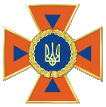Specialized defense committees
The results of postgraduate or postdoctoral research are presented during a public defense at a specialized defense committee. On successful defense the candidates are awarded a scientific degree (PhD). There are three specialized defense committees at the LSULS which examine the submitted thesis on theoretical and practical issues within fire safety, project and program management, and theory and methodology of vocational education.
FIRE SAFETY
Fire Safety is a research field which covers fundamental and applied research on various safety issues which occur in case of fires, as well as on impact of the environment on hazardous factors on fires, effect of fires on human life and health.
Research focus:
- fires and their characteristics (source of ignition, conditions, threats, causes, probability of occurrence, processes of development);
- statistics and fire monitoring;
- development and improvement of methods for assessing fire risks and indicators of fire hazard;
- identifying and implementing ways to increase the level of fire safety at various facilities;
- assessment and quantification of fire risk;
- fire hazard assessment (flammability, combustibility, smoke-forming ability, etc.) of substances, materials, products (including electrical), technological processes, facilities;
- processes of diffusion, deflagration, detonation, combustion, pyrolysis, spread of combustion, spread of flame, ignition, self-combustion, self-ignition, self-heating, burning etc. and factors influencing them;
- retardation of gas combustible environments;
- thermodynamics, mass and heat transfer;
- development and improvement of extinguishing agents;
- methods of applying fire extinguishing substances;
- development of fire-retardant substances;
- design of fire-fighting equipment;
- standardization, unification and metrology in the field of fire safety.
PROJECT AND PROGRAM MANAGEMENT
Project and Program Management is a research field which studies interrelations and patterns that occur while managing human, material, informational and other resources within the life cycle of a project. A project is an organizational and technical system which is unique and temporary, and aims at achieving a definite result by creating a product or a service. Scientific results and researches of interrelations and patterns that are undertaken to accomplish technological processes of product or service development are not within the scope of this research field.
Research focus:
- methodology of project and program management;
- programs and project portfolios;
- stages of project life cycle;
- processes of project and program management;
- elements of project and program management: resources (human, material, etc.), integration, information networks and links, content, time, purchases, cost, quality, risks, etc.;
- project-oriented organizations and offices for project and program management;
- knowledge management in projects and programs.
THEORY AND METHODOLOGY OF VOCATIONAL EDUCATION
Theory and Methodology of Vocational Education is a research field which explores the purpose, content, methods, means, organizational forms of vocational education.
Research focus:
- history of vocational education;
- theoretical and methodological foundations of vocational education;
- comparative professional pedagogy;
- textbook compilation for vocational education;
- theory and methodology of graduate education in vocational educational institutions;
- theory and methodology of professional training of the adult;
- standardization in vocational education;
- innovation in vocational education;
- postgraduate education issues;
- system of continuous vocational education;
- system of distance education;
- pedagogical skills in vocational training.















